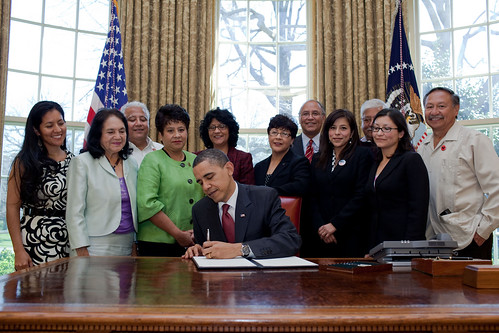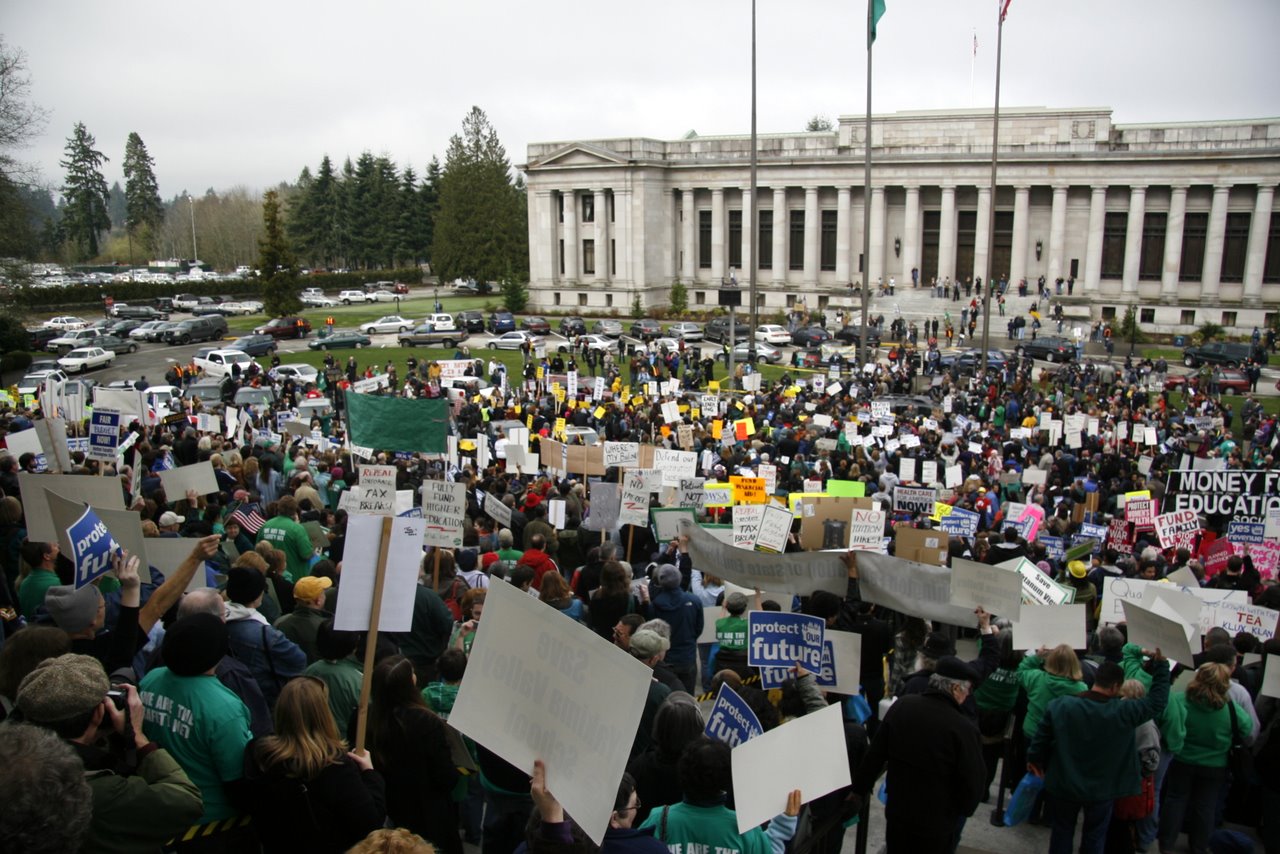Massive extractions, massive amounts of fossil fuels; such a relatively brief geological time-frame -- the geological blink of an eye; life on planet Earth, in the cross hairs?
Results:
- Certain economic uplift for some of world's population.
- Pollution, including green house gasses.
- Increasing extremity of real economic inequality between rich and poor.
Problem: No one knows what will happen.
- We do however know some of the certain present day outcomes, and while for a percentage, oh say roughly 20% of the world's population, life has gotten better, for many, it may be argued, improvements have not really panned out, and many people are stuck in impoverishment, and further, enslavement, in order to suit the economic benefits of others.
- We also know that a massive extinction event is already well under way. Many species have already been drive to demise, as a result of industrial impacts on environmental conditions, the ecological balances necessary for life to flourish.
And so what about the future... It is reasonable to question whether current activities might result in ever increasing consequences for over all life on Earth. This is not even to mention the present day injustices and violence associated with the current harmful economic paradigm.
So, why do some still take profit and reap reward from activities that do so much to harm (to others, and to the overall diversity and balance of life on Earth.) So--What do you think?
Showing posts with label environment. Show all posts
Showing posts with label environment. Show all posts
21 March 2014
05 April 2012
23 February 2011
Four Photos from Grass Lake Refuge
From a visit to Grass Lake Refuge, where it was windy, with simultaneous bright sunshine and snow flurries!
May nature inspire humanity toward a world of ecological and economic sustainability and stability, mutual peace and happiness for all people regardless of age, gender, ability, rate of development, skin color, sexual orientation, ethnicity, nationality, religion (or any other defining characteristic!)
Here are four photos (there are more posted on my Flickr site):
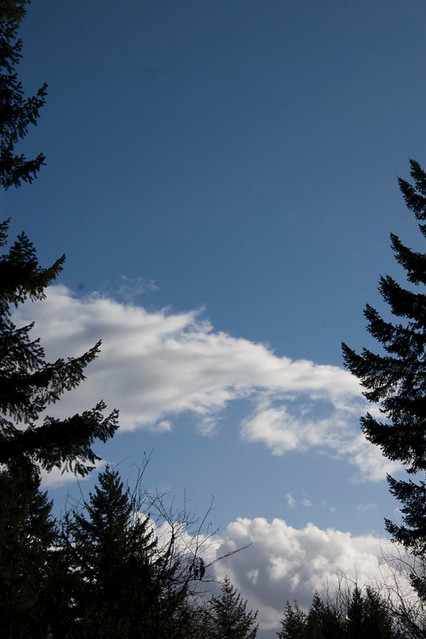
May nature inspire humanity toward a world of ecological and economic sustainability and stability, mutual peace and happiness for all people regardless of age, gender, ability, rate of development, skin color, sexual orientation, ethnicity, nationality, religion (or any other defining characteristic!)
Here are four photos (there are more posted on my Flickr site):

06 January 2011
Make Sharing the Rule
Humanity and the planet would be a lot better off if society was about mutual service and health, rather than—and instead of—being more about the accumulation of wealth, and about competition over—domination of—material resources. We'd all be a whole lot better off if sharing was the rule.
Berd
Severn Suzuki addresses a panel at the 1992 UN (United Nations) Conference on Environment and Development in Brazil
Berd
Severn Suzuki addresses a panel at the 1992 UN (United Nations) Conference on Environment and Development in Brazil
12 July 2010
Ship in Port, with Ideas about Success, Materialism, Society, and Health
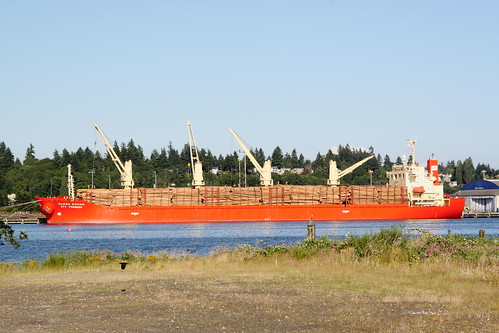
July 10, 2010
view original size
A ship carrying logs is seen at the Port of Olympia, in the City of Olympia, Thurston County, Washington State. The ship is the STX Pioneer, of Panamanian registry.
Despite the many faceted objections of environmentalists, the Weyerhauser company has teamed up with the public sector and is operating a log export operation at the Port of Olympia.
Many people who understand and care about the environment object to the activities of the Weyerhauser company. The lists of reasons is long. The objections stem at least in part because of the fact that the logging operation is harmful to ecosystems. The logging and shipping imperil the delicate biodiversity that is at the heart of ecosystem health. This goes along with a number of other reasons to object to the log export operations, including but not limited to the environmental effects from the transport of such a heavy commodity over long distances.
Should companies be allowed to engage in activities that harm the environment?
Who does the environment belong to? Or rather, who ought the environment belong to? (To some and not others? To all? To none?)
When there are harmful industrial activities, does it make more sense that some few should benefit disproportionately more than others, or does it make more sense to distribute the wealth in a way so that everyone would benefit equally?
Does the focus on a definition of success that leans on the metrics of materialism (v. spirit, or community, for example) promote a fundamentally harmful, abusive, violent relationship with the material of existence, the substance of the planet?
Is it possible that there other ways of defining success that would be more favorable toward a vision of economic stability and justice, and toward an end to what many believe is the criminal behavior of big companies?
In of the current system societies are engaged in competition to exert control over resources. Instead of this scenario, think about societies moving toward a culture of cooperation and stewardship and mutual prosperity. Think about society moving away from a culture of war, conquest and dominance.
Instead of measuring success based solely on personal material riches, perhaps success could be defined along the lines of a healthy community, on the ability to take care of each other, and to be truly aware and awake, conscious (and conscientious) in our daily lives, so that we are careful to the greatest extent possible to NOT do harm...
Perhaps success could be defined along the lines of efforts to strengthen the fabric of society, to work toward an end to all violence, and an end to all unnecessary suffering - an end to poverty, starvation, illiteracy, homophobia, sexism, ageism, racism, nationalism.
Perhaps success could be defined along the lines of contribution to the mutual health and well-being—the mutual happiness and prosperity—of all people.
Berd
06 July 2010
26 June 2010
Detroit Incinerator Protest
 Saturday, June 26, 2010, Detroit—Protest against Detroit incinerator. We were told that this is the "largest incinerator in the world." It's a privately owned for-profit company that does the job. It's called Covato, or something like that. I'll look it up and make any corrections.
Saturday, June 26, 2010, Detroit—Protest against Detroit incinerator. We were told that this is the "largest incinerator in the world." It's a privately owned for-profit company that does the job. It's called Covato, or something like that. I'll look it up and make any corrections.Also, it's hard to see smoke, but there is a nasty odor in the exhaust plume. I wonder if the particularly nasty stuff gets burned at night, or if the smoke has been cleaned up for the presence of out-of-towners with the forum this week. There was a very nasty odor when we walked downwind of the facility.
Detroit doesn't have a recycling program, so waste plastic, styrofoam and other toxics may very well be included in the waste that is burnt at the incinerator. Disgusting thought.
One organizer mentioned the concept of Zero Tolerance: There is no safe, nor allowable level for toxic emissions. Any toxins are unacceptable. For example, if the incinerator releases even one particle of dioxin, then it must be shut down. I agree. Especially if it is run for-profit.
No one deserves to profit from activities that do harm.
It was a great protest, I have a ton of photos. More later!
[more photos from the protest here: //peacepotential.blogspot.com/2010/07/more-photos-from-detroit-incinerator.html]
24 June 2010
Social Forum Day 3
Hey,
Interesting day today, lots to talk about. I did some laundry, and had an interesting bike ride a couple miles North from the WSU campus on Woodward. Laundromat was huge, and the machines worked well. The neighborhood was pretty depressed. Woodward was being repaved with some serious concrete slabs. I have to wonder what people are thinking by investing in this infrastructure when we know that our current societal addiction to fossil fuels is harmful and unsustainable and the cause of so much economic and environmental instability and injustice...
I went to an interesting workshop this morning. It was by an organization called Resource Generation (http://www.resourcegeneration.org/home.html), and I have some mixed emotions and (what I think are) deep thoughts about the workshop and some of the ideas that were presented. The workshop was titled, "Class Privilege and Activism." I think the crux of my discomfort related to the lack of analysis about the intrinsic harmful nature of the majority (if not all) of wealth generating activities... Basically, I think it makes the most sense to have a society that is economically egalitarian, because the real ways to happiness are less material than they are spiritual. Real happiness results from health, belonging, community, being part of a meaningful society.
So I was kind of distressed by how these young wealthy people were seemingly justifying or rationalizing their wealth based on fact that they're interested in being philanthropic. Like holding financial power over others, making the decision over who is going to get money and when?
I have more to write about this topic, I took some notes, hopefully I will have more energy to write on it tomorrow.
I saw Climbing PoeTree (http://www.climbingpoetree.com/) perform tonight, and enjoyed their performance. It's really electrifying. I encourage you to check out these talented performers.

Peace,
Berd
Interesting day today, lots to talk about. I did some laundry, and had an interesting bike ride a couple miles North from the WSU campus on Woodward. Laundromat was huge, and the machines worked well. The neighborhood was pretty depressed. Woodward was being repaved with some serious concrete slabs. I have to wonder what people are thinking by investing in this infrastructure when we know that our current societal addiction to fossil fuels is harmful and unsustainable and the cause of so much economic and environmental instability and injustice...
I went to an interesting workshop this morning. It was by an organization called Resource Generation (http://www.resourcegeneration.org/home.html), and I have some mixed emotions and (what I think are) deep thoughts about the workshop and some of the ideas that were presented. The workshop was titled, "Class Privilege and Activism." I think the crux of my discomfort related to the lack of analysis about the intrinsic harmful nature of the majority (if not all) of wealth generating activities... Basically, I think it makes the most sense to have a society that is economically egalitarian, because the real ways to happiness are less material than they are spiritual. Real happiness results from health, belonging, community, being part of a meaningful society.
So I was kind of distressed by how these young wealthy people were seemingly justifying or rationalizing their wealth based on fact that they're interested in being philanthropic. Like holding financial power over others, making the decision over who is going to get money and when?
I have more to write about this topic, I took some notes, hopefully I will have more energy to write on it tomorrow.
I saw Climbing PoeTree (http://www.climbingpoetree.com/) perform tonight, and enjoyed their performance. It's really electrifying. I encourage you to check out these talented performers.

Peace,
Berd
11 June 2010
08 June 2010
Can Capitalism Be Altruistic?

view larger
This book, "Only the super-rich can save us," by Ralph Nader, came out last year.
I think Ralph Nader is a brilliant thinker. I credit Ralph with initiating my own political awakening, to the harmfulness that is intrinsic to this corporate power dominated political system. These corporations compete for market domination. They can do no less - or else they would not be wise investments. Dominate to succeed. It's an unnatural and inharmonious system. Human beings have too much control over the environment to have a system that promotes and encourages the dominator paradigm. Another way is possible. A better way. A way of altruism, respect, kindness, compassion, reciprocity, truth, and peace....
Here are some of my initial thoughts about this book, I posted these on the facebook website earlier today:
I'm reading this new book by Ralph Nader. I'm about a chapter into it, "Only the super-rich can save us."
I think Ralph is brilliant, and I enjoy what seems, so far, to be the sense of humor in this book. However, there are some questions I have about the vision Ralph presents in this book, and although I am curious ab...out whether my questions will be addressed in this nearly 800 page epic, I am also skeptical.
The book presents Ralph's fictional (though he thinks plausible) scenario in which some of the world's richest philanthropists suddenly wake-up and realize how fucked-up the world is. Because of this realization, and the realization of their potential ability to make change, they therefore dedicate themselves, under the leadership of one mega-billionaire Warren Buffet, to use their capital, and other influence, toward the creation of an "open society" -a society that is altruistic and benevolent.
My question relating to the plausibility of this scenario revolves mostly around the realism of an expectation for reform within the capitalist (corporate socialism/ fascist) economy that we have.
It seems to me that capitalism has always been abusive. It seems to me that capitalism has always been exploitative and violent (slavery, extinction of species, et al.). It seems to me that on at least some level capitalism has always involved the mentality of divide and conquer. It seems to me that capitalism has always been oppressive.
So, so far the book is interesting, and I really appreciate what I think is Nader's sense of humor. About 40 pages into it, and I think it's an entertaining and interesting, crafty literary work of prose, albeit with a narrative that is sometimes somewhat silly, (an aspect which I personally find to be charming.)
But the question remains... is capitalism reformable? Is it possible to practice an altruistic capitalism? Or is the tendency to pit people against each other a radical and undeniable basic feature of the capitalistic economic system?
Is the concept of altruism anathema to capitalism (especially one that thrives on materialism/commercialism/consumerism)?
30 May 2010
There is Beauty, even in a Natural Disaster
It may be perverse, but I think there may even be some beauty to be found in nightmare horror that is the terror of the multi-national corporation quest to find the environmental bottom. hahaha! not REALLY - except perhaps in limited circumstances like the one seen below in a photo by Richard Perry of the New York Times, who photographed this stunning image of the red crude fossil fuel petroleum as it has reached the surface of the Gulf of Mexico in the wake of the recent Deep Water Horizon major industrial disaster.
What a sad state of affairs. I think it is just plain wrong for anyone to profit from environmentally destructive activities.
update: p.s. NOT that this man-made volcano is a natural disaster... But it is a disaster, and this image is somewhat beautiful. Though there are plenty of disturbing and alarming images that are not beautiful. I have been impressed with ongoing coverage of this issue in the New York Times. Although I think that the paper, and the mainstream media in general, are not doing anywhere near enough to question the underlying root-causes of this disaster. I think questions need to be asked about industrialization and technology, and about how people are profiting from the most destructive, abusive and violent endeavors.

photo by Richard Perry, The New York Times
What a sad state of affairs. I think it is just plain wrong for anyone to profit from environmentally destructive activities.
update: p.s. NOT that this man-made volcano is a natural disaster... But it is a disaster, and this image is somewhat beautiful. Though there are plenty of disturbing and alarming images that are not beautiful. I have been impressed with ongoing coverage of this issue in the New York Times. Although I think that the paper, and the mainstream media in general, are not doing anywhere near enough to question the underlying root-causes of this disaster. I think questions need to be asked about industrialization and technology, and about how people are profiting from the most destructive, abusive and violent endeavors.

photo by Richard Perry, The New York Times
28 May 2010
Following BP (it's a disaster - a volcano - not a "spill" nor a "leak" - a major man-made volcano!)
What a mess. At least now there is more information coming out about the lead up to the disaster, and how BP has a record of operating out of compliance with safety regulations.
So we can see how a corporation puts profit before the precautionary principle, and before the interests of life and health.
I am going to drop a few links here to articles that I think are important in terms of developing a more full understanding of the background and full scope of this disaster.
From Truthout.org: Ex-EPA officials ask why isn't BP under criminal investigation
Greg Palast: BP's other oil mess this week
NYT: Photo gallery
Video: what BP does not want you to see
Democracy Now! Oil disaster responders being hospitalized due to toxic exposure
Could the problem have been avoided?
NYT: Panel finds BP had evidence of problem with oil well long before disaster
NYT: Documents show earlier worries about safety of rig
What if BP let the disaster happen intentionally...
Does it make sense for people to profit from environmentally destructive activities?
So we can see how a corporation puts profit before the precautionary principle, and before the interests of life and health.
I am going to drop a few links here to articles that I think are important in terms of developing a more full understanding of the background and full scope of this disaster.
From Truthout.org: Ex-EPA officials ask why isn't BP under criminal investigation
Greg Palast: BP's other oil mess this week
NYT: Photo gallery
Video: what BP does not want you to see
Democracy Now! Oil disaster responders being hospitalized due to toxic exposure
Could the problem have been avoided?
NYT: Panel finds BP had evidence of problem with oil well long before disaster
NYT: Documents show earlier worries about safety of rig
What if BP let the disaster happen intentionally...
Does it make sense for people to profit from environmentally destructive activities?
26 May 2010
Oil Disaster in the Gulf of Mexico
The oil disaster in the Gulf of Mexico is very bad. BP (British Petroleum) estimates 5,000 barrels a day. Independent analysts estimate that the number could be ten times that much, or more.
At 5,000 barrels a day, the amount of oil would already be 4 times as much as the Exxon Valdez disaster (which happened over 20 years ago off the coast of Alaska.)
This is not to mention the possible effects of chemical dispersants, which have been used in the recent disaster to accelerate the decay of the swirling crude.
Most of the oil that is spewing from a pressurized oil deposit deep under the surface of the water (5,000 feet deep) is not reaching the surface, due to underwater currents. No one knows what the real consequences of this disaster (consequences for ecosystems and all the life in and around the waters of the gulf, and to human lives,) will be.
One thing is for sure though. This is a big deal.
This is not to mention that according to current regulatory policies BP's liability for the disaster is capped at $75 million. The total cost of the disaster could very well exceed the $1 billion mark. I am not sure if the $1 billion estimate includes the placement of monetary value on the potential loss of life (which is extreme.)
At 5,000 barrels a day, the amount of oil would already be 4 times as much as the Exxon Valdez disaster (which happened over 20 years ago off the coast of Alaska.)
This is not to mention the possible effects of chemical dispersants, which have been used in the recent disaster to accelerate the decay of the swirling crude.
Most of the oil that is spewing from a pressurized oil deposit deep under the surface of the water (5,000 feet deep) is not reaching the surface, due to underwater currents. No one knows what the real consequences of this disaster (consequences for ecosystems and all the life in and around the waters of the gulf, and to human lives,) will be.
One thing is for sure though. This is a big deal.
This is not to mention that according to current regulatory policies BP's liability for the disaster is capped at $75 million. The total cost of the disaster could very well exceed the $1 billion mark. I am not sure if the $1 billion estimate includes the placement of monetary value on the potential loss of life (which is extreme.)
22 May 2010
Dramatic Clouds
Lately, the atmosphere, clouds and sky, have been very dramatic here in Olympia. It's beautiful and inspiring, and stunning.
It also makes me wonder if these dramatic cloud forms and weather patterns are part of global warming. I can't help think about how human beings en masse are affecting the planet, ecosystems and physical systems (like the atmosphere.)
Maybe it's nothing, but with all of the human caused environmental degradation and pollution, it's possible that there is something to this theory.
I hope that we as human beings can clean up our act. I worry that humanity will destroy the living systems of the planet...
Here is an example of some of those amazing clouds, I have lots more cloud pictures on my flickr site.
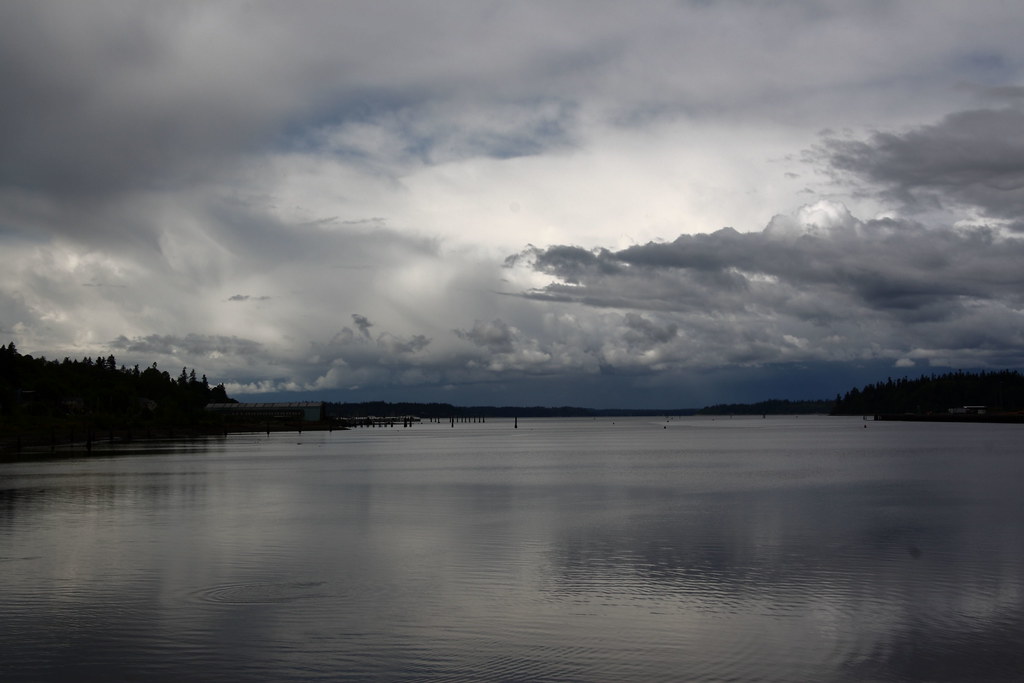
It also makes me wonder if these dramatic cloud forms and weather patterns are part of global warming. I can't help think about how human beings en masse are affecting the planet, ecosystems and physical systems (like the atmosphere.)
Maybe it's nothing, but with all of the human caused environmental degradation and pollution, it's possible that there is something to this theory.
I hope that we as human beings can clean up our act. I worry that humanity will destroy the living systems of the planet...
Here is an example of some of those amazing clouds, I have lots more cloud pictures on my flickr site.

01 April 2010
Comments re: Cesar Chavez Day Proclamation and Offshore Drilling
The following is posted on the White House flickr page:
Dear President,
This looks and sounds good.
But please, please, please move beyond the rhetoric and take action according to the ideals that Cesar Chavez fought for!
Thus far we have seen a lot of talk, but we need to see the walk.
Corporate greed is running humanity and this planet to ruin.
A better way is possible. Please. Lead the way to real change - to a real redistribution of wealth. To environmental and social stability, to ecological and economic justice and sustainability.
Wall street speculators driven by greed do not deserve a greater influence over policy matters than anyone else.
All people deserve to be treated equally by government.
This is good rhetoric. Now make it into good policy. Please - stand up against corporate power! Stand up against this tremendously abusive economic environment! Stand up against the exploitation of the poor by the rich!
Sincerely,
Berd
p.s. I think the move to deregulate off-shore oil drilling was incorrect.
Because, it makes sense to focus on reducing consumption, through improvements in efficiency, subsidies for public mass-transit, and the like - rather than open up the planet to increased industrial exploitation, which will only cause greater harm and increasing potentials for global warming and other related environmental catastrophe.
16 February 2010
Carrying Capacity
I was listening to the radio last night. KOWA FM 106.5 on the right hand side of the dial. I just caught a few minutes of the program, someone was talking about consumption and carrying capacity. People in the USA consume resources at an astounding rate - so much so that if everyone in the world consumed at the same rate as people in the US, then there would need to be material resources on the order of what only 4 or 5 more Earth scale planets could provide. According the program, people in the USA use on average about 30 hectares of land to support their annual consumption. Scary to think about. They also said that the USA is no longer the leader in per capita consumption (although the USA still uses much much more than any other nation.) The leaders in per capita consumption are the UAE (United Arab Emirates) and Kuwait. Other nations in the top 10 included Australia, Ireland, New Zealand - and right off the top of my head I can't remember which others. KOWA Radio — Olympia, WA
http://www.kowalp.org/index.php/Main_Page
http://www.kowalp.org/index.php/Main_Page
11 February 2010
Do Ecosystems Have Rights?
Why do corporations have rights when living ecosystems do not?
Please watch this very important, interesting, and powerful speech by Mari Margil.
Mari Margil speaks to the 2009 Bioneers conference in the spirit of The Lorax:
Protecting Against Environmental Degradation by Recognizing the Rights of Nature
I am also reminded about another set of important videos that have powerful ideas to share.
The Story of Stuff. And also The Story of Cap and Trade.
There are also a couple other videos in the production queue.
This is really really awesome work by Annie Leonard. Please also take time to see these important videos. http://www.storyofstuff.com/
It's all good food for thought.
Please watch this very important, interesting, and powerful speech by Mari Margil.
Mari Margil speaks to the 2009 Bioneers conference in the spirit of The Lorax:
Protecting Against Environmental Degradation by Recognizing the Rights of Nature
I am also reminded about another set of important videos that have powerful ideas to share.
The Story of Stuff. And also The Story of Cap and Trade.
There are also a couple other videos in the production queue.
This is really really awesome work by Annie Leonard. Please also take time to see these important videos. http://www.storyofstuff.com/
It's all good food for thought.
04 February 2010
Ecopsychology
I am profoundly affected by the environment. Environmental degradation makes me sad. Environmental degradation makes me sick.
I am signed up on an eco-psychology listserve, so I receive articles forwarded from similarly minded and interested people all around the world. That's how I was alerted to the following article in the NYT Magazine. I haven't read the whole article, but it's nice to see the field of eco-psychology in the somewhat mainstream press (not that the NYT Mag is exactly mainstream.) Well you get the idea.
Here's a link: Is there an ecological unconscious?
I am signed up on an eco-psychology listserve, so I receive articles forwarded from similarly minded and interested people all around the world. That's how I was alerted to the following article in the NYT Magazine. I haven't read the whole article, but it's nice to see the field of eco-psychology in the somewhat mainstream press (not that the NYT Mag is exactly mainstream.) Well you get the idea.
Here's a link: Is there an ecological unconscious?
03 February 2010
Olympia Harbor in 1856

view larger: Olympia Harbor
Washington did not become a state until 1889. Washington was the 42nd state to become part of the United States.
In 1856, over 30 years prior to Washington becoming a state, the landscape around Olympia was very different than it is today, in 2010.
I imagine that the environment was much healthier back then, with great flocks of wild birds, and a bounteous feast accessible for harvest from the waters of the Salish Sea.
Subscribe to:
Posts (Atom)

